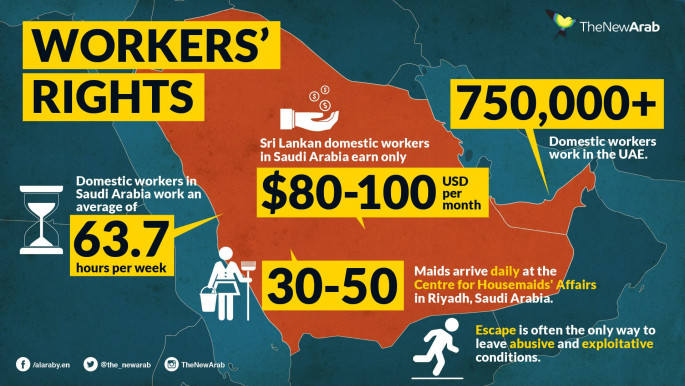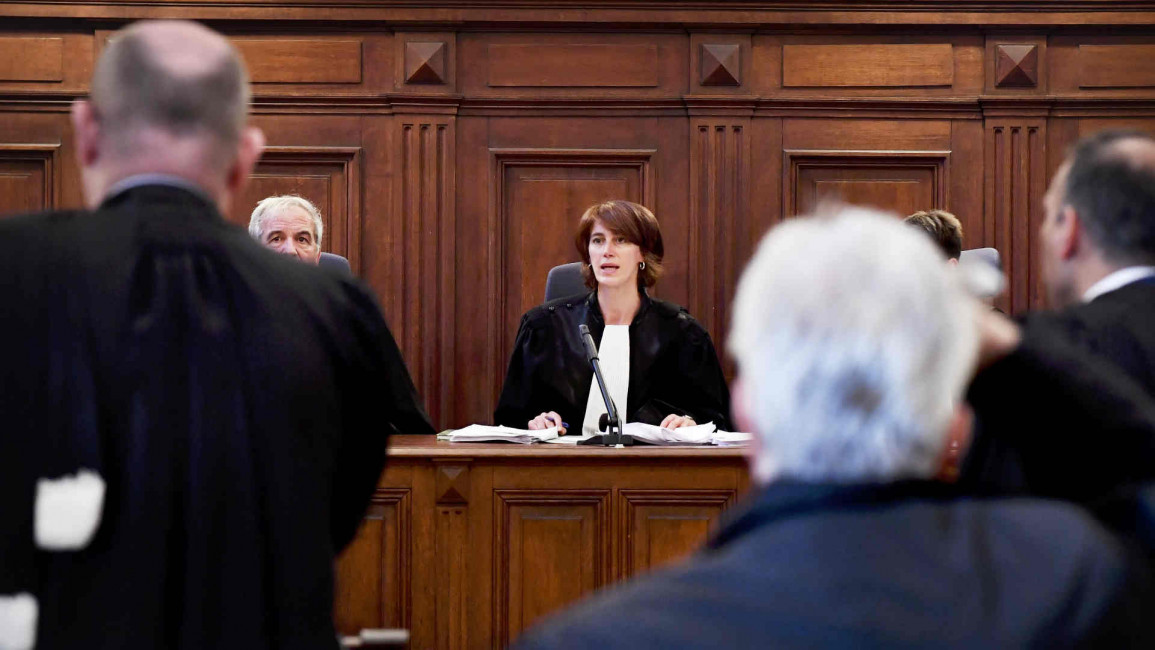UAE princesses given suspended jail sentences for abusing domestic workers
Eight Emirati princesses from the Nahyan royal family were prosecuted on human trafficking charges in Belgium on Friday.
Sheikha Hamda Al-Nahyan and seven of her daughters were each handed a suspended 15-month jail sentence and a €165,000 ($185,000 fine).
"We are very satisfied because the court made a very clear statement that this was a sort of modern slavery," said Jean-Pierre Jacques, representing the litigants.
"It's what we have been demanding for nine years," he added.
The princesses, who did not attend the trial, were accused of holding 23 domestic servants in appalling conditions during a visit to Conrad Hotel, Brussels, in 2007. The defendants denied all the charges.
The case emerged after one of the workers escaped the hotel and told police of their appalling working conditions. According to testimony, they were expected to be on call 24 hours a day and did not receive even one day off.
The court also heard the workers were paid incredibly low wages and were working with the necessary labour or residency documents.
Domestic workers’ rights in the UAE, like in much of the Middle East, is a source of hot controversy.
The UAE's federal national council passed a new bill earlier this month that granted domestic workers one day off per week, shortened work shifts to 12 hours and allowed 30 days of paid annual leave.
One parliamentarian voted against the bill, as he said granting time off would allow his staff to go off and get pregnant while in his service.
"If I have a maid and I allowed her to go out, she will get involved in illicit relationships and tomorrow she will come back to me pregnant, and then there will be a problem," Mohammad al-Ketbi, who represents Sharjah, told The National.
There are around 750,000 domestic workers in the UAE, making up nearly 20 percent of the expatriate workforce, according to official statistics.
One report describes how some workers are forced to work up to 21 hours a day, with no rest breaks or day off.
Many workers are not paid their full salaries and in some cases are even physically or sexually abused.
One HRW expert on migrant workers in the Gulf told the BBC that it was "hugely significant" that one of the wealthiest families in the world was publicly linked with trafficking and slavery.Nicholas McGeehan said domestic slavery continues in Gulf states - "perpetuated by ruling elites for whom it serves an important societal purpose in conferring status".
"It's top-down and tolerated," he added.




